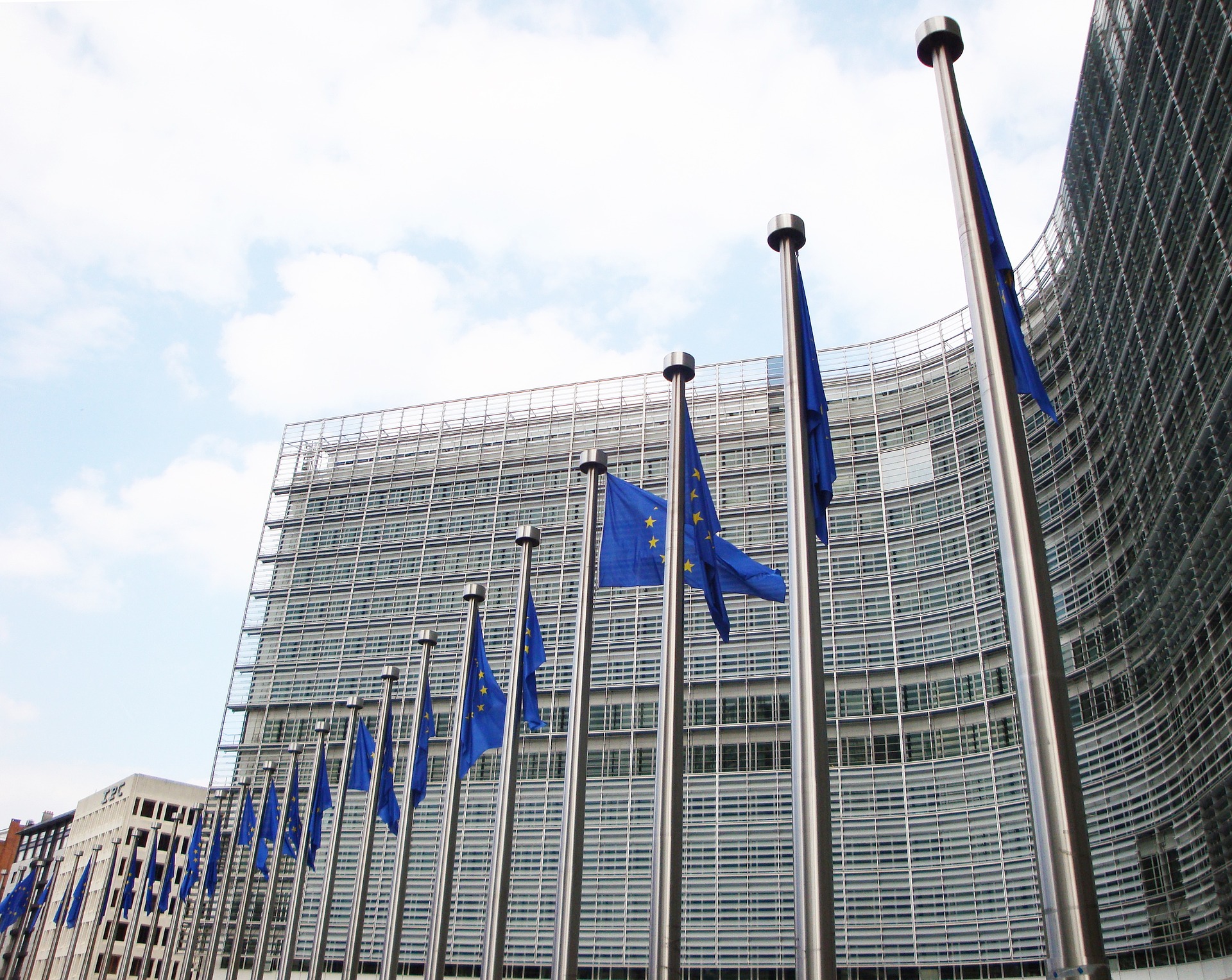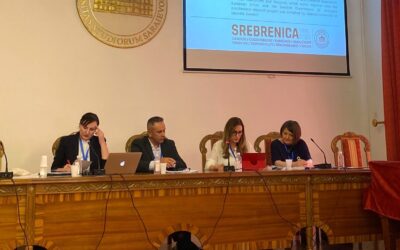 As August comes to a close, fewer out-of-office emails populate our inboxes, mornings become more hurried and more leisurely walkers on our morning commutes start to get on our nerves. Now we know that the summer break is over – the European institutions have come back to life after the summer hibernation, and it’s time to “go back to school”. With that we, in civil society organisations, have also moved back into the fast lane, for the autumn months are always busy in Brussels.
As August comes to a close, fewer out-of-office emails populate our inboxes, mornings become more hurried and more leisurely walkers on our morning commutes start to get on our nerves. Now we know that the summer break is over – the European institutions have come back to life after the summer hibernation, and it’s time to “go back to school”. With that we, in civil society organisations, have also moved back into the fast lane, for the autumn months are always busy in Brussels.
This year is no exception. In fact, they may be even busier than before for those who work on EU Enlargement policy and accession countries, for the timeline of the annual Enlargement Progress Reports is shifting this year. Last year at this time, we would have just submitted short updates about events in the summer months, and otherwise looked forward to the publishing of the annual reports in a couple of months’ time. This year the European Commission is shifting to a calendar year format, so as we come back from our summer breaks, we only now gear up for gathering reports from activists across the Balkan region in order to feed into to consultation process and the upcoming NGO consultations ahead of the annual Enlargement Progress Reports which are due to be published in April 2018.
As in previous years, ILGA-Europe, in collaboration with numerous civil society organisations in the Western Balkans and Turkey compile our own reports – the LGBTI Progress Reports – with a focus on developments and priorities for the human rights of LGBTI people in accession countries (see past submissions here). We submit those to the European Commission, followed by attending NGO consultations in person, with the aim of ensuring that issues of concern are reflected in the reports, consequently raised by EU institutions with relevant national level authorities, and thereafter used in all of our on-going advocacy work.
The progress reports are a way for the Commission to measure the preparedness of countries for taking on the obligations of membership in the EU, and provide clear guidance to the countries on what reforms are needed. The country reports are a “to do list”, if you will, for countries and contain concrete measures to be taken in the following year. They provide a key avenue for civil society on the ground to highlight issues directly with EU institutions, and hold their governments accountable for the commitments they have made.
As we enter this reporting cycle and highlight developments from the last year (and a bit), and look forward to the priorities coming up, it is interesting to look back at last year’s reports (indeed, despite their length) to see what the European Commission (with input from civil society groups) identified as action points for each of the Accession countries. Were these action points taken up? What have governments done to fulfil them since then? Essentially, have the accession countries done their homework?
I started browsing through the reports this week, as I prepared a template to send to activists from the region for their input, and, out of curiosity, started pulling out some of the action points relating to the human rights of LGBTI people identified in last year’s reports. Here they are, to satisfy your curiosity too. And, hopefully, to help you prepare your submissions for the upcoming cycle of Enlargement Reports and have a direct say in the homework set for your country for 2018.
Overall feedback
- Albania continued to comply with international human rights instruments. It has ratified most international human rights and humanitarian conventions. However, it needs to take further action to ensure their full implementation.
- The resources of the Ombudsman’s central and local offices need to be enhanced to ensure that they can function satisfactorily
Bias motivated violence, hate speech, hate crimes
- Services for victims of domestic violence should improve in quality, quantity, accessibility and geographical coverage.
Freedom of assembly, association and expression
- The overall environment is conducive to the freedom of expression, but better implementation of the legislation is needed.
Equality and non-discrimination, including legislation and enforcement
- Data collection on hate crime continues to be lacking.
- Anti-discrimination case-law needs to be further developed and its implementation improved.
Recognised unions for same sex couples
- Amendments to the family code to introduce the concept of cohabitation of same-sex couples have not yet been adopted.
Public awareness and attitudes
- Public awareness and social acceptance remained low, particularly in rural areas.
Overall feedback
- Some progress was achieved in particular with the adoption of amendments to the anti‑discrimination law. The strategic, legal, institutional and policy frameworks for the observance of human rights remain in overall need of substantial improvement.
- A countrywide strategy for human rights and non-discrimination needs to be adopted.
- The Ombudsman still lacks adequate human and financial resources to perform its functions as national human rights institution.
Bias motivated violence, hate speech, hate crimes
- A mechanism to collect data on hate crimes and discrimination cases has still not been established.
- There needs to be consistent judicial follow-up and a systematic and comprehensive monitoring of hate crimes.
- Relevant legislation on hate speech regarding in particular the elements of incitement, intention, the public nature and the contents of the crime still needs to be harmonized.
- Lack of effective implementation of legislation on the prevention of and protection from gender-based violence, in particular domestic violence, remains a concern.
- Relevant legislation is still not harmonised with the Istanbul Convention on preventing and combating violence against women and domestic violence.
- There have still been no indictments over the 2014 attack on the Merlinka Festival.
- Attacks in 2016 were not classified as hate crimes but as misdemeanours.
Equality and non-discrimination, including legislation and enforcement
- Same-sex couples are continuously discriminated against through the legal system, which fails to provide them with any of their social and economic rights.
Rights and equal treatment of trans and intersex persons
- The transgender community remained marginalised and no efforts were taken to simplify the procedure of legal sex change, which would enable legal gender recognition without having to complete medical transition.
Overall feedback
- More efforts are needed in practice to ensure the respect of human rights of vulnerable groups
- The bodies involved in protecting and promoting human rights lack sufficient staff and financial resources, they coordinate poorly and, in some cases, are not considered independent.
Bias motivated violence, hate speech, hate crimes
- The legal framework on hate speech is generally in line with international standards but its implementation needs to be stepped up: the prosecution service did not initiate any new proceedings and there is only one ongoing.
- There is no systematic data collection in place on the reporting, investigation and prosecution of hate speech and hate crime.
Equality and non-discrimination, including legislation and enforcement
- On non-discrimination, alignment with the acquis is incomplete, notably lacking the prohibition of discrimination on the grounds of sexual orientation.
- Public awareness on gender equality is lacking and gender stereotyping persists
Equal rights and treatment of trans and intersex persons
- No proper gender reassignment treatment is available.
Public awareness and attitudes
- Considerable efforts are still needed to counter intolerance towards LGBTI people.
- The national authorities should considerably intensify efforts to raise awareness of and respect for diversity in society.
- The training of law enforcement bodies, prosecutors, judges, health workers and teaching staff remains important.
Overall feedback
- Implementation of human rights continues to be hindered by a lack of resources and political commitment, including at local level.
- The protection of the rights of persons belonging to minorities and persons with disabilities need to be significantly strengthened.
- Progress needs to be made on effective implementation of human rights legislation.
- Increased financial commitment to human rights protection at all levels is needed, while donor dependency should be reduced.
Bias motivated violence, hate speech, hate crimes
- Cases of verbal and physical assaults against members of the LGBTI community should be properly investigated.
Equality and non-discrimination, including legislation and enforcement
- Legislation to implement the law on protection from discrimination has not been adopted.
- The performance of institutions in processing and investigating discrimination cases remains poor.
- The advisory and coordinating group for the rights of LGBTI persons needs to take a more proactive role by providing concrete advice and recommendations to relevant institutions.
Overall feedback
- The Ombudsman needs to ensure that the gender equality referral mechanism is fully enforced and that the overall distribution of staff reflects the workload of the departments.
- Public trust in the independence of the Ombudsman’s office should be built up.
Freedom of assembly, association and expression
- A new law on public assemblies and public events was adopted in July. The law substantially improves the quality of regulation of freedom of assembly and association. Further improvements will be required at a later stage.
- The practical implementation of standards in this area needs to be strengthened.
Equality and non-discrimination, including legislation and enforcement
- On non-discrimination, the law requires further alignment with the EU acquis.
- The number of court cases remains very low, and the lack of proportionate and deterrent sentencing needs to be addressed.
- The Ombudsman’s capacity to handle complaints has improved; however, further improvement is needed to ensure timely and quality follow-up on reported cases of discrimination.
- The Ministry of Human Rights and Minorities has taken over the supervision and monitoring of the relevant strategic framework, but lacks sufficiently experienced staff in this field.
Public awareness and attitudes
- The situation remains difficult at local level, and within society itself, where acceptance of sexual diversity is slower. Targeted measures with a regional dimension should be inserted in the national action plan. Systematic anti-discrimination campaigns in schools and universities are still not in place.
Overall feedback
- Generally, the legal framework to uphold and protect minority and cultural rights is in place. However, consistent implementation across the whole country is needed.
- Strong and visible political support is needed to protect the rights of the groups facing most discrimination, including lesbian, gay, bisexual, transgender and intersex (LGBTI) persons.
Bias motivated violence, hate speech, hate crimes
- Hate speech is often tolerated in the media and is rarely tackled by regulatory authorities or prosecutors.
- Inciting national, racial and religious hatred and intolerance is prohibited in the criminal code. It remains essential to set up a data collection system and properly investigate, prosecute and sanction all hate-motivated offences.
- The protection of women against all forms of violence needs to be strengthened and mechanisms for coordinating the collection and sharing of data between all relevant actors in the system enhanced.
- the situationfor LGBTI people has not progressed much and LGBTI persons and activists continue to be subjected to hate speech, threats and sometimes even physical violence.
Freedom of assembly, association and expression
- As regards freedom of expression, the situation has not improved. There is a need to maintain and foster space for political dialogue, critical discussion and debate and expression of differing opinions both in mainstream media and in social networks.
- A new law on public gatherings was adopted in January . However, the first cases of application of the law indicated that shortcomings still exist. By-laws necessary for full implementation of the law have not yet been adopted.
Equality and non-discrimination, including legislation and enforcement
- Anti-discrimination legislation and legislation to protect minorities is in place but needs to be consistently implemented. Amendments to bring it fully in line with the EU acquis remain to be adopted.
- Activities to promote equality and ensure integration of persons belonging to the most discriminated groups (Roma, LGBTI, persons with disabilities, persons with HIV/AIDS and other socially vulnerable groups) need to be effectively carried out.
Equal rights and treatment for trans and intersex persons
- Serbia has no procedures for legal gender recognition in place, even in cases of gender reassignment.
Public awareness and attitudes
- School textbooks containing discriminatory content need to be revised.
- Stronger political commitment is needed to promote a culture of respect for LGBTI persons and to ensure non-discrimination at work, in the health sector and the education system.
- The level of public prejudice against the LGBTI population is still relatively high and needs to be addressed.
Overall feedback
- Overall situation the Turkish legal framework includes general guarantees of respect for human and fundamental rights, which need to be further improved.
Bias motivated violence, hate speech, hate crimes
- Hate crimes, attacks and murders as well as police violence against transgender people and activists are a source of serious concern. There is no specific legislation against these crimes.
- Some media outlets promote hate speech against LGBTI persons. The law suits filed by LGBTI persons in such cases usually do not result in effective investigations or sanctions by the judiciary.
Freedom of assembly, association and expression
- Freedom of assembly continues to be overly restricted, in law and practice, in particular through disproportionate use of force in policing demonstrations and a lack of sanctions and investigations of law enforcement officers.
- In the past year, serious backsliding in the area of freedom of expression continued and gave rise to growing concern. Last year’s recommendations were not followed and can therefore be restated.
- The legislation on the freedom of association for national and foreign organisations and its implementation should be brought in line with European standards. Provisions restricting registrations, procedures for permissions and the functioning of associations need to be revised using clear implementation criteria and applied in a consistent and non-discriminatory manner.
Equality and non-discrimination, including legislation and enforcement
- The new Law on the Human Rights and Equality Institution of Turkey is a step in the right direction. It contains provisions on prohibiting discrimination on a large number of grounds, but does not explicitly cover sexual orientation.
- There is still a need to adopt a fully comprehensive dedicated law on combating discrimination in line with the European Charter of Fundamental Rights, including with regards to sexual orientation.
- Non-discrimination is still not sufficiently enforced, in law or in practice. The rights of the most vulnerable groups and of persons belonging to minorities should be sufficiently protected. Gender-based violence, discrimination, hate speech against minorities, hate crime and violations of human rights of lesbian, gay, bisexual, transgender and intersex (LGBTI) persons continue to be a source of a serious concern
- The National Human Rights and Equality Institution needs to be rapidly established and start processing cases of discrimination.
- The new Law on the National Human Rights and Equality Institution does not explicitly include sexual identity and sexual orientation among grounds for discrimination.
- In the military disciplinary system, homosexuality is still defined as a ‘psychosexual disorder’ and in the military’s medical regulation as an illness
- Discrimination over the right to employment on the basis of sexual orientation remains widespread
Written by Daina Ruduša, Advocacy and Programmes Officer, ILGA-Europe.
If you wish to know more about this process, or to feed into the Annual LGBTI Progress Report, please contact her: daina@ilga-europe.org


